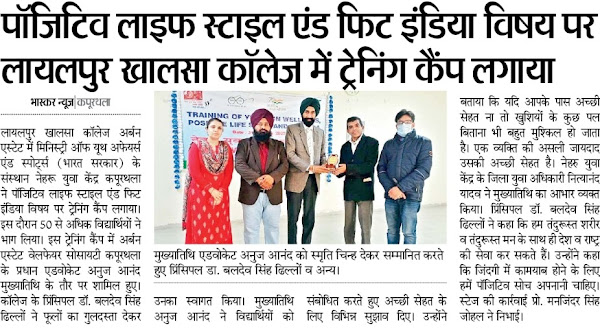Development of
Education during British Period in India
Education policy of the British: In pre-British days, Hindus and
Muslims were educated through Pathshala and Madrassa respectively, but their
advent created a new place of learning i.e. Missionaries. So that, they can
create a class of Indian who would be “Indian in blood and colour, but English
in taste” who would act as interpreters between the Government and the masses.
"An investment
in knowledge pays the best interest." -Benjamin
Franklin
Education is a powerful tool to unlock the golden door of
freedom that can change the world. With the advent of the British Rule in
India, their policies and measures breached the legacies of traditional schools
of learning which resulted in the need for creating a class of subordinates. To
achieve this goal, they instituted a number of acts to create an Indian canvas
of English colour through the education system.
Initially, the British
East India Company was not concerned with the development of the education
system because their prime motive was trading and profit-making. To rule in
India, they planned to educate a small section of upper and middle classes to
create a class “Indian in blood and colour but English in taste” who would act
as interpreters between the Government and the masses. This was also called
the “downward filtration theory”. The
following steps and measures were taken by the British for the development of
Education in India. The chronological development of Education during the
British Period in India is discussed below:
1813 Act & the Education
1. Charles
Grant and William Wilberforce, who was missionary activists, compelled
the East India Company to give up its non-invention policy and make way for
spreading education through English in order to teach western literature and
preach Christianity. Hence, the British Parliament added a clause in the 1813
charter that Governor-General-in-Council less than one lakh for education and
allowed the Christian Missionaries to spread their religious ideas in India.
2. Act had its own importance because it was the first
instance that British East India Company acknowledged for the promotion of
education in India.
3. With the efforts
of R.R.M Roy, the Calcutta College was established for
imparting Western education. Also, three Sanskrit colleges were set up at
Calcutta.
General Committee of Public Instruction, 1823
1. This committee was formed to look after the development
of education in India which was dominated by Orientalists who were the great
supporter of Oriental learning rather than the Anglicans. Hence, they created
paramount pressure on the British India Company to promote Western Education.
As a result, the spread of education in India got discursive between
Orientalist-Anglicist and Macaulay’s resolution come across with a clear
picture of the British education system.
Lord Macaulay’s Education Policy, 1835
1. This policy was an attempt to create a system of
education that educates only the upper strata of society through English.
2. Persian was abolished as the court language and
English become the court language.
3. Printings of English books were made free and available
at a very low price.
4. English education was allotted more funds as compared to
oriental learning.
5. In 1849, JED Bethune founded Bethune School.
6. Agriculture Institute was established at Pusa (Bihar)
7. Engineering Institute was established at Roorkee.
Wood’s Dispatch, 1854
1. It is considered as the “Magna Carta of English
Education in India” and contained a comprehensive plan for spreading education
in India.
2. It states the responsibility of the State for the spread
of education to the masses.
3. It recommended the hierarchy education level- At the
bottom, vernacular primary school; at district, Anglo-vernacular High Schools
and affiliated college, and affiliated universities of Calcutta, Bombay, and
Madras Presidency.
4. Recommended English as a medium of instruction for
higher studies and vernacular at school level
Hunter Commission (1882-83)
1. It was formed to
evaluate the achievements of Wood Dispatch of 1854 under W.W
Hunter in 1882.
2. It underlined the state’s role in the extension and
improvement of primary education and secondary education.
3. It underlined the transfer of control to district and
municipal boards.
4. It recommended two division of secondary education-
Literary up to university; Vocational for commercial career.
Sadler Commission
1. It was formed to study on the problems Calcutta
University and their recommendations were applicable to other universities
also.
2. Their observations were as follows:
I. 12-year school course
II. 3-years degree after the intermediate stage
III. Centralised functioning of universities, unitary
residential-teaching autonomous body.
IV. Recommended extended facilities for applied scientific
and technological education, teacher’s training, and female education.
Impact of British rule on
education
In the process, indigenous education suffered. It is too broad
concept, and the exact impact of British rule on different regions at different
times has to be studied more carefully before we conclude that the curve
everywhere constantly declined.
What kind of Education
did India have before British rule?
Modern education began in India under British rule. Before the
British, India had its own educational systems like the Gurukulas and the
Madrassas. The East India Company, during their first 60 years of rule didn’t
care much for the education of those they ruled in India. (Even in England,
universal education came about at a much later stage.)
Why did the British
neglect education for Indians?
According to the British,
by getting the education Indians could stand against the British Rule. They
thought that if Indians would become educated they could get equal rights and
positions as them in the society
Why was education
important to the Indian reformers?
The Indian reformers Raja Ram Mohan Roy, Daya Ram
Sahni believed that to keep up with times, a modern
educational system was needed to spread rational thinking and scientific
principles. The Charter Act of 1813 was the first step towards education being
made an objective of the government.
By Assistant professor: Harpreet Kaur
Department
of History













